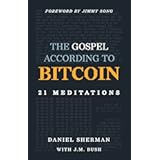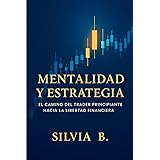Choosing the Best Bitcoin Wallets in 2025: Your Guide to Secure Crypto Storage
Have you ever found yourself wondering, “Where exactly do I keep my Bitcoin after I buy it?” It’s a common concern, especially for those new to the cryptocurrency world. The video above provides an excellent overview of top Bitcoin wallets available in 2025, breaking down options for everyone from beginners to seasoned traders and long-term investors. However, understanding the *why* behind securing your digital assets, and exploring each wallet’s distinct advantages in more detail, can empower you to make an even more informed choice. This guide delves deeper into crucial aspects of Bitcoin storage, ensuring your crypto remains safe and sound.The importance of a personal Bitcoin wallet cannot be overstated. Leaving your Bitcoin on an exchange, while convenient for trading, means you don’t truly control your assets. History is replete with examples like Mt. Gox, Celsius, and FTX, where billions of dollars in customer funds vanished due to hacks, mismanagement, or insolvency. These incidents serve as stark reminders of crypto’s golden rule: “Not your keys, not your coins.” A dedicated Bitcoin wallet acts as your personal, impenetrable vault, putting you in sole command of your digital wealth.
Therefore, obtaining a reliable Bitcoin wallet is an absolute necessity, not just an option. This step is fundamental to protecting your investment against potential external threats and ensuring genuine ownership. Your financial independence in the crypto space hinges on this principle of self-custody.
Understanding Bitcoin Wallet Types: Hot vs. Cold, Custodial vs. Non-Custodial
Before selecting your ideal wallet, it’s crucial to grasp the fundamental distinctions in wallet technology. These categories define how your private keys – the secret codes that prove ownership of your Bitcoin – are managed and protected. Each type offers a different balance of convenience and security, catering to varied user needs and risk tolerances.
On one hand, we have **hot wallets**. These are online wallets, typically applications on your smartphone, desktop computer, or within a web browser. They are always connected to the internet, making them incredibly convenient for quick transactions and active trading. For instance, using a hot wallet to pay for goods or send Bitcoin to a friend is usually seamless. However, this constant internet connection also makes them more susceptible to online threats, such as malware, phishing attacks, and potential hacking attempts. Think of a hot wallet like cash in your physical wallet – easy to access, but more exposed.
Conversely, **cold wallets** (or cold storage) are offline devices. These are usually dedicated hardware wallets that keep your private keys isolated from the internet. Because they are not connected online, cold wallets offer a significantly higher level of security against cyberattacks. They are the preferred choice for long-term storage of substantial amounts of Bitcoin, often referred to as “hodling.” While cold wallets provide superior protection, they are less convenient for frequent transactions, as each interaction requires physically connecting the device and manually confirming the action. This might feel like storing valuables in a bank vault – highly secure, but not for everyday use.
Beyond connectivity, wallets also differ in their custody model: **custodial** versus **non-custodial**. A custodial wallet means a third party holds your private keys on your behalf. This is common with many centralized exchanges, where they manage the security and often offer easier recovery options if you forget your password. However, this arrangement inherently means you are trusting another entity with your assets, returning to the “not your keys, not your coins” dilemma. The company could be hacked, become insolvent, or restrict your access.
A non-custodial wallet, on the other hand, puts you in complete control. You alone hold your private keys, typically represented by a “seed phrase” (a series of 12 or 24 words). This provides ultimate freedom and true ownership of your Bitcoin. However, with this freedom comes significant responsibility; if you lose your seed phrase and have no backup, your Bitcoin is irrecoverable. There is no customer support to call, no password reset option available. Understanding these distinctions is paramount to selecting a wallet that aligns with your specific needs for security, convenience, and control over your digital assets.
Top Bitcoin Wallets for 2025: A Deep Dive into Secure Storage
The landscape of Bitcoin wallets is constantly evolving, with new technologies enhancing both security and user experience. As the video highlights, 2025 offers a robust selection of wallets, each catering to different levels of expertise and specific user preferences. Let’s explore some of the most compelling options, diving deeper into what makes them stand out.
Best Wallet: Simplicity Meets Advanced Security for Beginners
Best Wallet lives up to its name for newcomers to the Bitcoin space. It tackles one of the biggest pain points for beginners: the intimidating seed phrase. Instead of a complex recovery phrase, Best Wallet employs Multi-Party Computation (MPC) technology. This innovative approach splits your private key into multiple parts, storing one on your device and another on secure Fireblock servers. This means no single point of failure exists; a hacker would need to compromise both locations simultaneously to gain access, making it significantly more secure than traditional hot wallets. The setup process is remarkably straightforward, and its interface is intuitive, feeling more like a familiar banking app than a crypto platform. It even allows direct Bitcoin purchases via debit card or PayPal, streamlining the entry process for those just starting their crypto journey.
Ledger: The Gold Standard for Hardware Wallet Security
Ledger has long been synonymous with hardware wallet excellence, trusted by millions globally for its robust security features. As a cold storage solution, Ledger devices ensure your private keys never touch the internet, keeping them isolated from online threats. Every transaction initiated through a Ledger wallet requires physical confirmation on the device itself, providing an extra layer of security against remote attacks. The company offers a range of models to suit different budgets and needs, from the accessible Nano S Plus, ideal for basic secure storage, to the Nano X, which adds Bluetooth connectivity for mobile management, and the premium Ledger Stax, featuring a large touchscreen for enhanced usability. For anyone serious about long-term Bitcoin investment, a Ledger device represents one of the most reliable choices for safeguarding your holdings.
Trezor: The Transparent Pioneer of Hardware Wallets
Trezor holds a special place in crypto history as the very first hardware wallet, launched back in 2013. Its enduring popularity stems from its unwavering commitment to open-source development. This means Trezor’s code is publicly available for anyone to audit, fostering unparalleled transparency and community trust. There are no hidden backdoors or proprietary secrets; every security mechanism can be verified. Newer Trezor models, such as the Trezor Safe 3 and Safe 5, enhance security further by allowing users to split their recovery phrase into multiple parts, adding redundancy and mitigating the risk associated with a single backup. Trezor also provides the Trezor Suite, an intuitive desktop application for managing, buying, and selling Bitcoin directly from your device. For users who prioritize transparency, community-vetted security, and a long-standing reputation, Trezor remains an exceptional choice.
Zengo: Seedless Security with Advanced Biometrics
Zengo distinguishes itself by eliminating the traditional seed phrase entirely, addressing a major point of confusion and vulnerability for many beginners. Instead, it employs a sophisticated three-factor authentication (3FA) system that combines your email, a biometric face scan, and a secure recovery file. This innovative approach significantly simplifies the recovery process while maintaining a high level of security. Zengo boasts a strong security track record, having never been hacked. Its mobile-first design makes it incredibly convenient for on-the-go management, and the optional Pro version adds advanced features like theft protection and inheritance planning. For those seeking a highly secure, easy-to-use mobile wallet that sidesteps the complexities of seed phrases, Zengo offers a compelling solution.
Tangem: Cold Storage Simplified into a Card
Tangem revolutionizes cold storage by transforming it into a credit card-sized device. This “tap and go” wallet operates by simply tapping the card on your NFC-enabled smartphone to sign transactions. It embodies simplicity: no USB cables, no complex setups, just a seamless interaction. Each Tangem set typically includes two or three cards, providing crucial backups in case one is lost or damaged. These cards are remarkably durable and boast a guaranteed lifespan of 25 years, offering long-term reliability. Tangem provides an elegant solution for those who desire the robust security of cold storage but prefer a minimalist, physically resilient form factor. It feels truly futuristic while delivering essential security.
Cypherrock: Extreme Security for the Dedicated Hodler
Cypherrock caters to the most security-conscious Bitcoin hodlers, offering a unique approach to private key management. This wallet departs from single devices and standard seed phrases, instead utilizing Shamir’s Secret Sharing. This cryptographic technique splits your private key into five distinct parts, known as “shards.” Crucially, you only need a predetermined number of these parts (e.g., two or three) to reconstruct your key and access your Bitcoin. This provides incredible resilience; if you lose one or two parts, your funds remain safe and accessible. Cypherrock is designed for ultimate decentralization and anti-fragility, making it an ideal choice for large Bitcoin holdings intended for multi-generational wealth preservation. It even includes advanced inheritance features, ensuring your Bitcoin can be securely passed on to future beneficiaries, a vital consideration for long-term investors.
Choosing the right Bitcoin wallet in 2025 means balancing ease of use with robust security. Whether you opt for the beginner-friendly MPC of Best Wallet, the battle-tested hardware of Ledger or Trezor, the seedless innovation of Zengo, the elegant simplicity of Tangem, or the extreme security of Cypherrock, the ultimate goal remains the same: taking control of your Bitcoin. Securing your digital assets with a personal wallet is the most fundamental step towards genuine financial sovereignty in the world of cryptocurrency.







